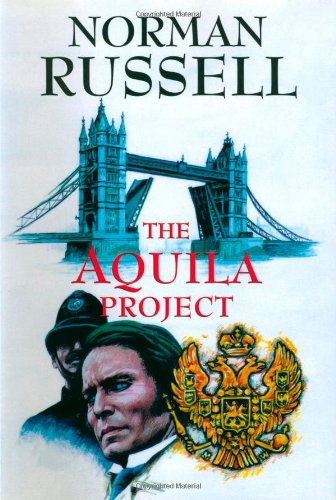The Aquila Project
London, June 1894. The Prince of Wales arrives to open Tower Bridge; the police discover a bomb in one of its boiler rooms and arrest Anders Grunwalski, brandishing a pistol. After Grunwalski is sprung from custody before he can be questioned, Inspector Box of Scotland Yard and Colonel Kershaw of Military Intelligence set about uncovering a conspiracy among Polish émigrés against Tsar Alexander III. But the Russian autocrat is already a dying man. Is the true prey his heir, Nicholas, or another ruler?
When Frederick Forsyth published The Day of the Jackal he set a high standard for thriller writers plotting the death of a head of state. Alas, Mr Russell has some way to go to match Forsyth’s tour de force. The concept is good, not least because violent death was an occupational hazard of royalty at that time. Tsar Alexander’s father and brother were both victims of assassination, along with the Kings of Italy (1900) and Portugal (1908), along with Empress Elisabeth of Austria (1898), the Portuguese Crown Prince Luis (killed alongside his father) and the Habsburg heir Archduke Franz Ferdinand. But Russell fails to bring it off. Perhaps the main strength of Forsyth’s novel is that the story never loses its sense of being firmly grounded in reality, as the lone assassin makes his meticulous preparations to murder President de Gaulle, and the police painstakingly find and follow his trail. Unfortunately, The Aquila Project never acquires that sense, remaining unreal throughout. Too, apart from Inspector Box, the characters are stock figures, and far too many of them prove to be double agents.










